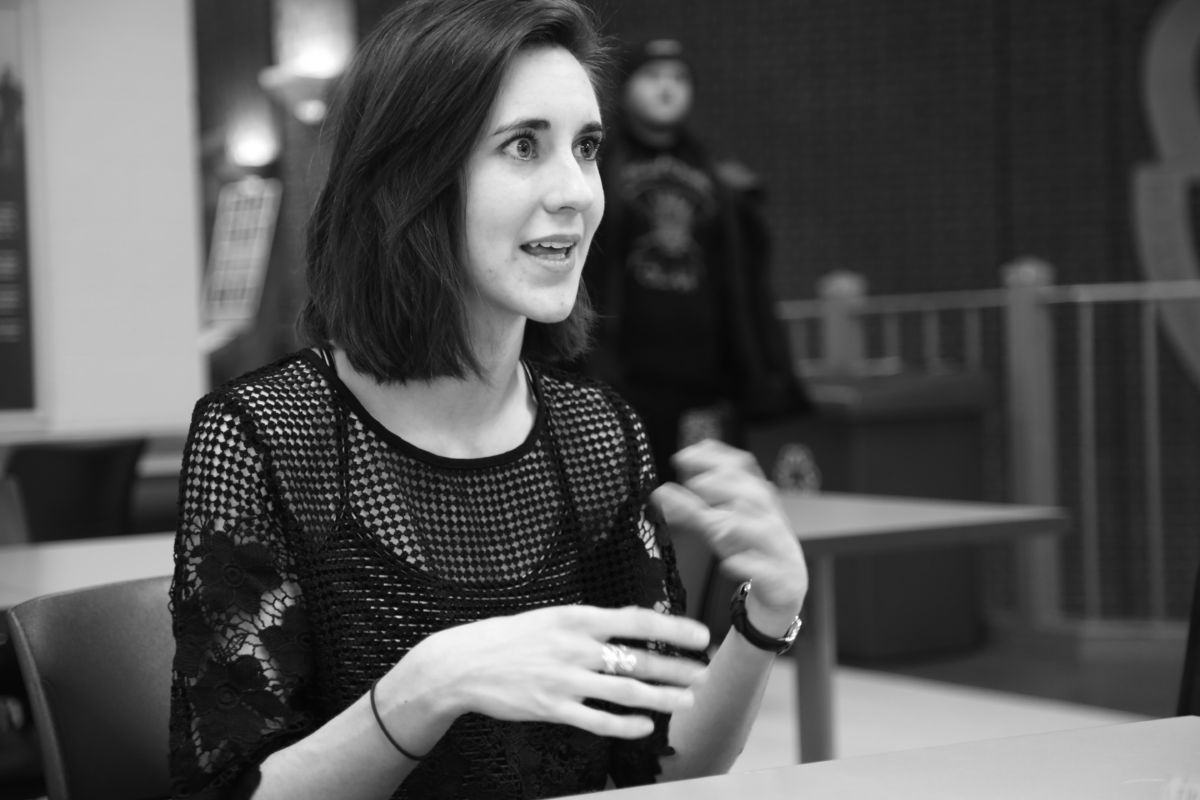
The provincial government announced an economic model for the New Brunswick arts board that’s left many wondering where the fate of artistic freedom lies for the 2016-17 year. As part of the liberal government’s Strategic Program review leading up to a final budget plan released on Feb. 2, the New Brunswick Arts Board, or Artsnb, will become part of the province’s Department of Tourism, Heritage and Culture.
In a press release put out by the department, these changes will lead to a “more streamlined method of administering grants” for arts and artists in New Brunswick – but Artsnb executive director Akoulina Connell said these changes are bad news.
“What they’re doing is illegal. The advocacy of the arts board would disappear – if we moved inside government, no private foundation is ever going to donate money for the arts,” said Connell.
Artsnb is an arms-length organization with charitable status – as such, they’re able to receive funding from private donors and other bodies not connected to government. It also means that said funding is out of government hands and allocated solely through Artsnb.
Connell explains the board’s structure as an advocacy branch for artistic culture in the province – alongside executive and communications teams, Artsnb is made up of professional artists of every discipline and representation from english, to french, to aboriginal parties. In 1989, the arts board started off inside government but through a push by artists, an independent arts board was formed.
By 1991, an act was passed to move the board outside of government. Connell said the process was nothing short of extensive – through two liberal governments in New Brunswick, the act was strengthened by 1999, mandating Artsnb to represent artists.
Connell stresses that bringing Artsnb under governmental care would cancel out the objectivity of the board’s peer jury process. This jury is also made up of artists and allows for comprehensive review of funding for certain aspects of the organization.
“With the peer jury process delivered at arm’s length, there’s no opportunity for a program officer paid by government to tell you you can’t fund a certain project,” said Connell. “Regardless of where our programs are run, the peer-jury process is going to cost exactly the same outside government as it does inside.”
Fourth-year St. Thomas University student Sharisse LeBrun said it’s frustrating to see the arts board merge with New Brunswick’s Department of Tourism, Heritage and Culture. LeBrun is president of Theatre St. Thomas and teaches at Theatre New Brunswick, a soon-to-be graduate steeped in Fredericton’s arts scene.
“Art is something you’re supposed to be able to speak out against politics if you need to. There’s a fear of censorship with the funding because the agenda of your work might not align with the government’s,” said Lebrun. “Funding will technically still be there but it’s going to be filtered through tourism and history – through the government. It’s no longer at arm’s length.”
LeBrun has worked as an artist in tourism and understands the importance of the industry, but this could could leave many artists hesitant to create because they often have to create according to the stereotypes of a specific region’s tourism sector.
She adds that most artists in the province work multiple jobs to provide for themselves, which often isn’t enough. That’s where the arts board comes in.
“I know it’s a proposed budget cut but it feels like such a blow. There are very few professional artists working full-time in N.B. Most of us are putting a lot of our own free time and money into art – Artsnb is a great way to have some of those expenses covered.”
Connell puts the new budget in perspective through example – potential acts, pieces and works could be subject to governmental review – without a peer jury.
“What if a gallery wanted to do something really controversial in the name of art? Do you think the government would feel comfortable financing that?,” said Connell. “If the people running the program are paid by government, and the executive is a government employee, how is that exec and those program officers any different from the officers already working for the department?”
LeBrun is weary, but remains optimistic. Along with many other independent artists through Fredericton’s non-profit artist collective ShiftyBits Cult, LeBrun plans to write letters to New Brunswick’s political offices in hopes of change.
“It was nice to see the minute it was posted, everyone was sharing it and posting opinions – it’s encouraging.”
